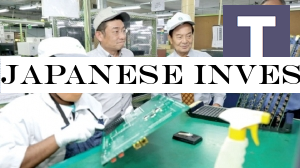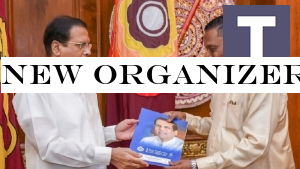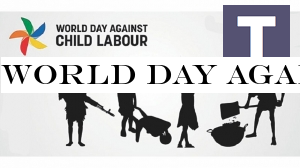Music
Trailers
DailyVideos
India
Pakistan
Afghanistan
Bangladesh
Srilanka
Nepal
Thailand
Iraq
Iran
Russia
Brazil
StockMarket
Business
CryptoCurrency
Technology
Startup
Trending Videos
Coupons
Football
Search
Download App in Playstore
Download App
Best Collections
Srilanka

This yearPoson week will begin today and will continue till 18 this month. Many programmes have been organized in Anuradhapura, Atamasthanaya, Mihintale and Thanthirimale sacred places. Anuradhapura District Secretary said that, all the organizers are prepared to provide special facilities for the benefit of the pilgrims to Anuradhapra during this Poson season.He also said over 200 Dansals will be conducted by various organisations.
- Details
- Category: Srilanka
Read more: Poson week begin today
Write comment (99 Comments)
Supporters wave U.S. flags as they attend the Rally for America event at Marshall University Stadium on May 24, 2003 in Huntington, West Virginia.Way back in 2011, I wrote a column for Foreign Policy on &the most powerful force in the world.& The powerful force I had in mind wasn&t nuclear deterrence, the Internet, God, Lady Gaga, or even the bond market; it was nationalism. The idea that humans form distinct tribes based on a common language, culture, ethnicity, and self-awareness, and that such groups ought to be able to govern themselves, has shaped the history of the past 500 years in ways that many people still do not fully appreciate.
Nothing has happened since then to alter my views; if anything, the importance of understanding the power of nationalism is even greater today. It was nationalism—specifically, a desire to regain lost national autonomy—that drove the British decision to leave the European Union, even though the movementleaders (and I use that term advisedly) cannot figure out how to do it and departure is likely to make most Britons poorer and could lead to the eventual dissolution of the entire United Kingdom. U.S. President Donald Trump rode nationalist nostalgia for an imagined past (&Make America Great Again&) to the White House in 2016, and it forms the basis for the protectionist and anti-immigrant policies that keep his political base loyal now. Nationalism is central to Chinese President Xi Jinpingambitious efforts to make China a world leader, and it is the common thread uniting right-wing European politicians in France, Austria, Italy, Hungary, and Poland. Everywhere one looks, in fact, one sees nationalism at work in todayworld.
Why is nationalism so powerful, and why is its impact so important
For starters, humans are social beings. From the moment we are born, we belong to some sort of community—a family, a tribe, a village, a province, and, today, a country. Because we depend on those around us from the very beginning, humans have evolved to be highly sensitive to in-group/out-group distinctions. Being able to identify friends and foes quickly was once critical for survival, and it is cognitively easier to rely on simple indicators (&she speaks my language&; &he looks different than my group&) than conducting an in-depth assessment of someone elsecharacter or propensities. Given these evolutionary imperatives, it is hardly surprising that humans are probably more sensitive to such distinctions than we ought to be. This is not to say we cannot see beyond our own tribes and forge powerful attachments to others, or that we cannot redefine who is &in& or &out& over time; it is merely to say that we have a strong propensity to identify more strongly with those we regard as being &like us.&
Encourage national unity
Thus far, the &nation& has been the largest cultural group with this sort of enduring attraction for its members. The defining traits that make up a nation can vary, but they usually include a common language, shared culture, a territorial origin, and a shared narrative about the collective past. Most importantly, a nation is a group of people that conceives of itself as constituting a unique community with a particular identity. In Benedict Andersonfamous phrase, nations are &imagined communities& where total strangers nonetheless recognize and acknowledge each other as belonging to the same group.
Moreover, as John Mearsheimer points out in his recent book The Great Delusion, the power of nationalism rests in part on its symbiotic relationship with the state. Given the competitive pressures inherent in a world with no central authority, states have powerful incentives to encourage national unity within their borders, so that citizens are loyal and more willing to sacrifice for the state when necessary. Promoting nationalism—and especially a common language—also helped create more unified national economies and more productive populations, thereby enhancing the stateoverall capacity.
Similarly, because national groups that lack their own state are more vulnerable to conquest, absorption, persecution, or assimilation, many nations decided that having a state of their own was the best way to ensure their survival as an independent cultural group. The unfortunate histories of the Kurds, Palestinians, Tamils, and many others shows what can happen when a national groupaspirations to statehood are repeatedly thwarted.
In the modern world, in short, nations want their own states to ensure their survival and autonomy, while states promote nationalism to strengthen themselves and preserve their independence. Nationalist movements hope to add themselves to the ranks of U.N. members, while states do what they can to suppress independence movements within their borders and to create a homogeneous body of loyal citizens. In extreme cases, minorities are expelled, slaughtered, or &re-educated& (as China is now trying to do to the Uighur population in Xinjiang) in an effort to create a more unified (and presumably loyal) population.
Taken together, these twin imperatives help explain why nationalism remains such a powerful and persistent force. And make no mistake: Its impact is profound. Even overly educated and generally skeptical individuals (e.g., me) are hardly immune to its effects. Why do I bemoan the absence of American men among the ranks of the worldtop tennis players Why do I root for the American team at the menand womenWorld Cup Not because I know any of these athletes personally and happen to like them or admire their individual virtues; for all I know, they might be undeserving jerks. No, I&m rooting for them solely because they&re American. Although I think of myself as fairly cosmopolitan in outlook and wise to the seductive appeal of national pride, I can&t escape it entirely.
Political leaders
Why should we care about this powerful and enduring phenomenon First, because national sentiment is easily exploited by political leaders, including most of the demagogues whose activities are currently roiling politics around the world. By wrapping themselves in the mantle of patriotism, and constantly warning about the foreigners that are supposedly threatening our way of life, would-be authoritarians such as Hungarian Prime Minister Viktor Orban or cynical opportunists such as Boris Johnson can convince supporters that they are the only defense against national decline or even extinction.
Second, nationalist narratives encourage double standards: They rationalize whatever oneown side does while depicting similar behaviour by others in the worst possible light. Americans condemn President Vladimir PutinRussia for its actions in Ukraine (and they are certainly worthy of condemnation), but we forget that we&ve done plenty of similar things in the past. It is more than a little ironic, for example, when the same people who loudly demanded that the United States invade Iraq in 2003 (on the basis of dubious arguments and manufactured &evidence&) were quick to attack Russia for its interference in Ukraine. Can you spell &hypocrisy& Similarly, U.S. officials like Secretary of State Mike Pompeo routinely portray Iran as a relentless aggressor, blithely ignoring all the moments when the United States has used its vastly greater military powers to interfere in states that had done nothing to attack us. Mind you, I&m not defending Russian or Iranian conduct; I&m just showing how nationalist blinders make it harder to see what is really going on.
Third, nationalism can get in the way of potential political compromises, especially when supposedly sacred national territory is involved. There was no rational reason for Serbia to try to retain Kosovo back in 1999 (the local population was overwhelmingly made up of hostile Kosovars and the region itself was of no great strategic or economic value), but Belgrade could not let it go because it was the cradle of Serbian national identity. Similarly, the inability of contemporary states to solve lingering territorial disputes (whether in Kashmir, the East China Sea, the Sakhalin Islands, or wherever) owes much to the power of national feeling. Not so very long ago, states ceded or sold territory when it made strategic or financial sense for them to do so, and they usually did it without much controversy. (The United States got the Louisiana Purchase from France and Alaska from Russia in just this way, for example). Today, such actions are almost unheard-of, because nationalized populations resist giving up anything that is seen as part of the countrysacred territory. - Foreign Policy
- Details
- Category: Srilanka
Read more: Can’t defeat Nationalism, so stop trying
Write comment (94 Comments)
A leading Japanese investor - President of Tosslec Co. Ltd, Kyoto, Japan Jitsuo Mikasa - reaffirmed that his company would continue to invest in Sri Lanka without any break or disruption of the companycustomer network. Tosslec Co. Ltdsubsidiary Tos Lanka Co. (Pvt) Ltd has been in operation in the Biyagama Export Processing Zone since 1995. Tos Lanka has created a niche market position as a supplier of ‘low volume high value& electronic components to sophisticated markets of Japan, North America and Europe.
- Details
- Category: Srilanka
Read more: Japanese investor working on Electronics Solution for moth repellents
Write comment (100 Comments)
The government has set specific objectives for State owned Enterprises (SOEs) to be achieved through Statement of Corporate Intent (SCIs) by 2020-2021. On Monday, 10 SOEs entered into SCIs with the Finance Ministry in a bid to strengthen their governance, accountability and transparency under clearly defined medium term targets.
- Details
- Category: Srilanka

The new Sri Lanka Freedom Party (SLFP) constituency and district organizers have received their letters of appointment form the President Maithripala Sirisena today (11th) morning at President Office.
Accordingly,
Mr. Jeevan Kumarathunga as the Kasbeewa constituency organizer
Mr. Namal Suranga has been appointed as the Gampaha & Ja-ela organizer
Mr. Lalith Tensil as the Negambo constituency co-organizer
Mr. Ravindra Sri Suranga as the Horana constituency organizer
Mr. Sugath Mathugamage as the Beruwela constituency organizer
Mr. Saliya Gunasinghe as the Kaluthara district organizer
Mr. H. Priyantha Pushpakumara as the Kandy Pathadumbara constituency co & organizer
Mr. Anuruddha Palitha Bandara as the Ududumbara constituency co-organizer
Mr. Kanishka Avinash Rathnasekara as the Rathnapura district organizer
Mr. Kangasundaram Udaya Kumar as the Trincomalee district Werugal area organizer and Mr. S.M. Subiyan as the constituency co- organizer
Mr. A.R. Idris as the Muthur area organizer
Mr. M.H.M.Raasik as the Muthur organizer
Mr. N. Sunil Raasik as the Kuchchaweli organizer
Mr. Alagu Dharmarajan as the Trincomalee Kapplthre area organizer
Mr. Kaali Raja Krishnaraja as the Trincomalee urban council Tamil area organizer
Mr. R. Kalippulla as the Kinniya local organizer
received their letters of appointment form the President Sirisena, who is the also the President of SLFP.
Sri Lanka Freedom party Senior Vice President Mr. Nimal Siripala de Silva, Sri Lanka Freedom party secretary General Mr. Dayasiri Jayasekara, Mr. Mahinda Amaraweera, Mr. Lasantha Alagiyawanna and senior members were also present on this occasion.
- Details
- Category: Srilanka
Read more: New Organizers Appointed
Write comment (91 Comments)
The World Day Against Child Labour will be observed today to raise awareness about the plight of child labourers worldwide. Hundreds of children drop out of school every year to help their parents earn a livelihood. The more unfortunate ones are forced into child labour by organised crime rackets, while many others never get to see a school because of extreme poverty.
- Details
- Category: Srilanka
Read more: World Day Against Child Labour 2019 today
Write comment (95 Comments)Page 338 of 392

 19
19





